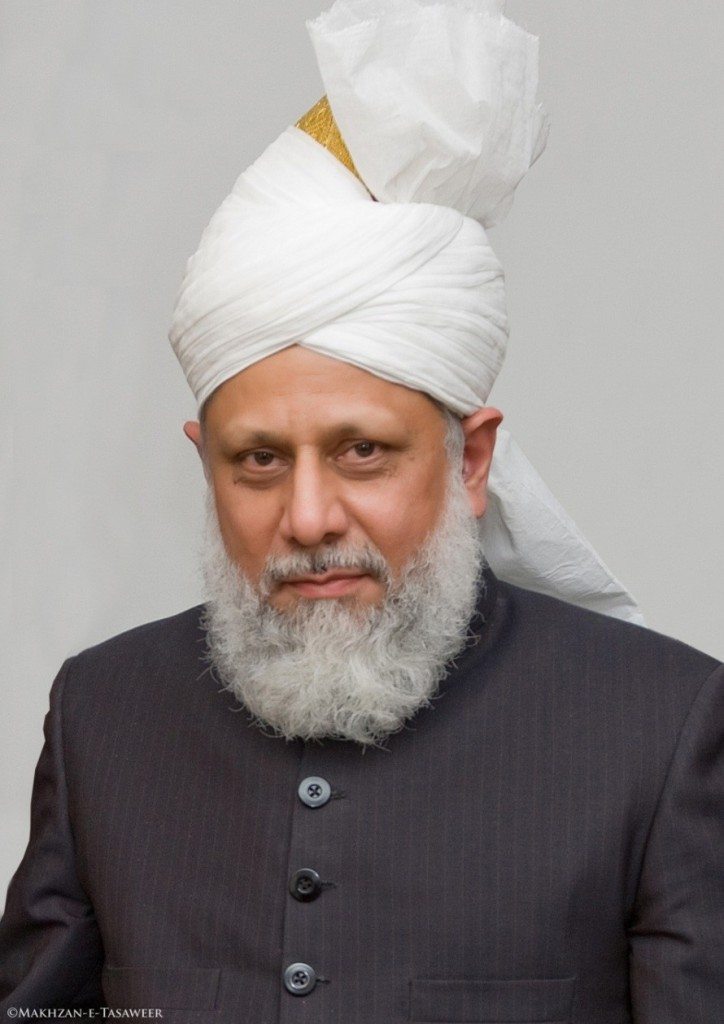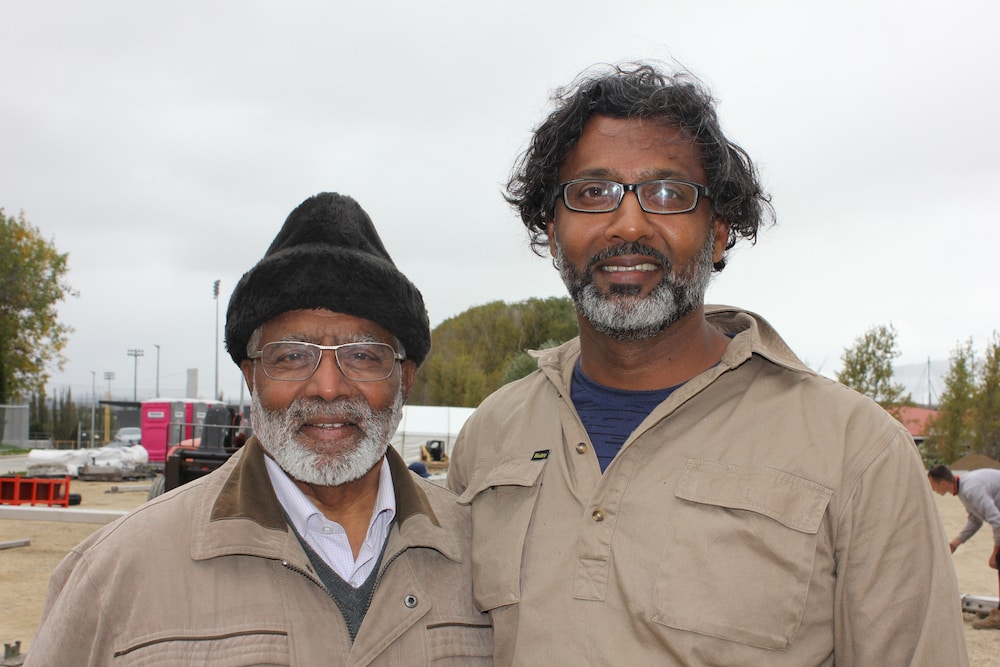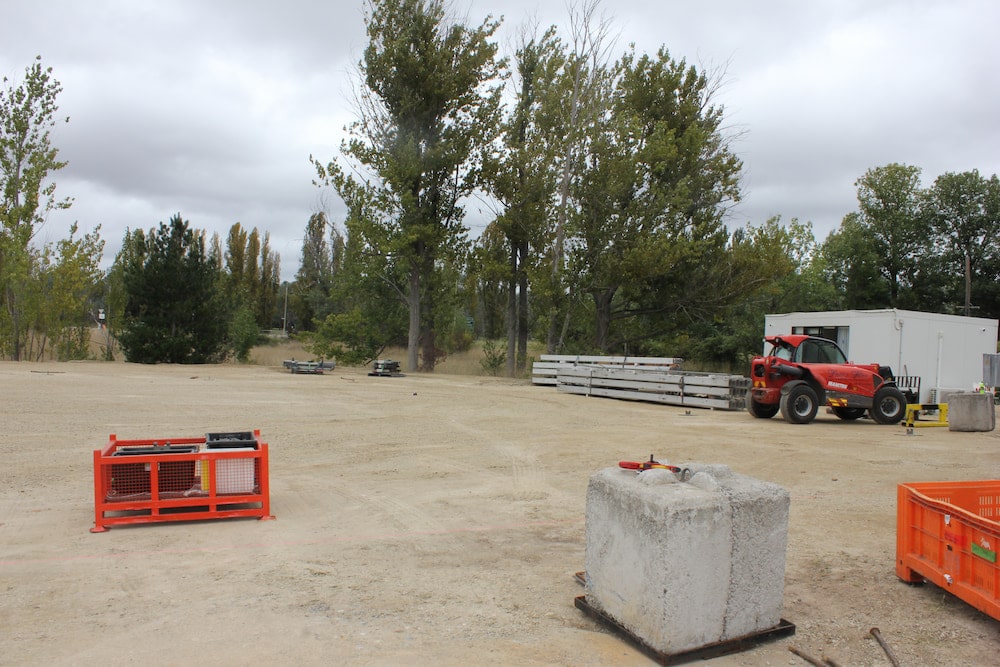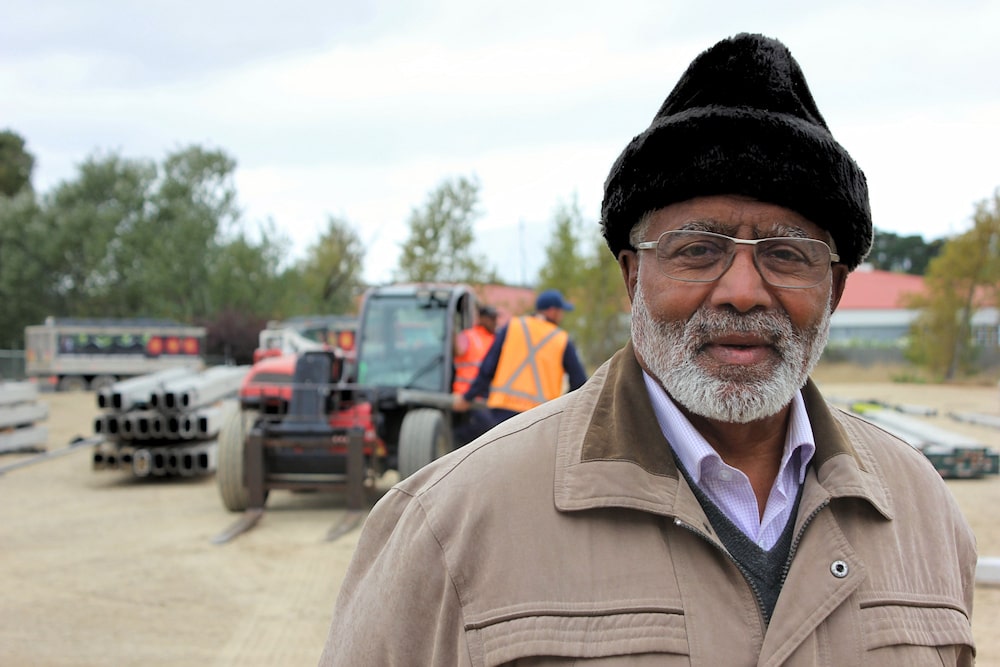Canberra’s Ahmadi Muslims have waited for a mosque for more than a decade, but on Sunday, the foundation stone will be laid in Narrabundah.
“By the grace of God, once we have the mosque erected, this will be our base and source of unity,” said Imam Ahmed Nadeem, of the ACT branch of the Ahmadiyya Muslim Association Australia.

Ahmadiyya, an Islamic revival group, was founded in India in 1899; its founder, Mirza Ghulam Ahmad, declared he was the Mahdi awaited by the Muslims, and the Messiah expected by Jews and Christians, his mission to peacefully convert the world to Islam; end bloodshed and religious wars; and return the religion to its original, true meaning of peace, forgiveness, and tolerance.
Today, there are an estimated 10 to 20 million Ahmadis in 200 countries worldwide, the world’s largest Islamic community under one leader, Hazrat (His Holiness) Mirza Masroor Ahmad, the fifth Khalifa (Caliph).
Almost 6,000 Ahmadis live in Australia; the ACT’s 150-odd come from Pakistan, Bangladesh, Africa and Fiji.
“All of our mosques are built with the purpose of bringing people together and serving the community,” said Imam I.H. Kauser, National President of the Ahmadiyya Muslim Community of Australia.
The new mosque, ‘Baitul Hadi’ (‘House of Guide’), will be built in Narupai Street, near the Narrabundah Ball Park. The community bought the site in 2018, and submitted the design in November 2019.
The mosque costs more than $4 million, all donated by local Ahmadis over the last five years.
“We believe in giving rather than taking,” treasurer Mohammed Hasan explained. “We do not accept charity from any organisation or government; we would rather give donations to other charities which need the money; but rather our members contribute for every project we have.”
Women were first and foremost to donate, Mr Hasan said, while even young children have given their pocket money. “As a community, we teach our children to be forthcoming with charity.”

While a construction company will build the mosque, the Ahmadis themselves levelled the ground and laid the sand. Imam Nadeem himself learnt how to use a bobcat and roller.
Previous attempts to build an ACT Ahmadiyya mosque in Rivett or Hume fell through. The Ahmadis currently use an industrial site in Barrier Street, Fyshwick, for their prayers, functions, and programs, Imam Nadeem said.
This will be only the third purpose-built mosque in Australia, with a minaret and dome. Imam Kauser hoped the minaret would be “a beacon of light radiating peace and love for humanity”.
Construction is expected to take a year to 18 months; once finished, the mosque will accommodate 300 worshippers.
A foundation stone-laying ceremony will be held on Sunday morning. The first brick will be sent from London, with special prayers from the Caliph.

Imam Kauser and Imam Nadeem welcomed non-Muslims to visit the mosque. “The mosque is for everyone; the mosque is a house of God. Whosoever believes in one God is most welcome,” Imam Kauser said.
It was always open to anyone seeking peace or tranquillity, Imam Nadeem said.
Ahmadiyya may be the fastest-growing sect of Islam – although not all Muslims consider Ahmadis part of the ummah.

While Sunnis and Shi’ites consider Muhammad the last prophet, Ahmadis believe Mirza Ghulam Ahmad to be a later but subordinate prophet. In stark contrast to Islamist extremists, Ahmadis believe in the separation of mosque and state; emphasise social justice, including women’s equality; and reject terrorism and violence.
“We are proud that none of our members is ever involved in any terrorist activities at all,” Imam Kauser said.
Ahmadis view jihad as a spiritual struggle, and oppose the spread of Islam by force.
“We do not believe one is to be compelled to accept Islam through the sword,” Imam Kauser said. “There is no compulsion in religion. … We should struggle for peace, pray for peace. This is our jihad – and our community is always involved.”
Ahmadis have been persecuted and oppressed, particularly in Pakistan, where the sect is considered heretic, and members are deprived of religious rights. In 2010, suicide bombers killed almost 100 people in Lahore, while hundreds of Ahmadis were massacred in 1953 and 1974. Mirza Masroor Ahmad, himself Pakistani, lives in exile, while Nobel-winning physicist Abdus Salam has been almost forgotten in his native country.
Conversely, Ahmadis encourage inter-faith harmony. The world’s religious figures are considered prophets: Buddha, Krishna, Confucius, Lao Tzu, Guru Nanak, and Zoroaster, as well as Jewish and Christian figures traditionally recognised in Islam. The Ahmadis hold interfaith dialogues and symposia, such as Religious Founder’s Day on 28 March.
“As children of God, we are one, no matter what creed, race, or religion we belong to. Either you are my brother in faith; and if not, you are my equal in humanity,” Imam Nadeem said.
Ahmadis also take part in Clean Up Australia Day, plant trees, Red Cross blood donations, and distribute hand sanitiser and masks.
Members of the public are welcome to attend the event, which will take place at 4 Narupai Street, Narrabundah, on Sunday 21 March at 11am.
For more news:
- Political football: New Canberra stadium kicked down the road
- ‘It’s not just me’: 2021 ACT Woman of the Year praises her allies
- ACT economy is above standard and far from poor, according to S&P
- Things to do in Canberra this weekend, 19-21 March
- First NPG exhibition of the year celebrates love, affection, and connection



